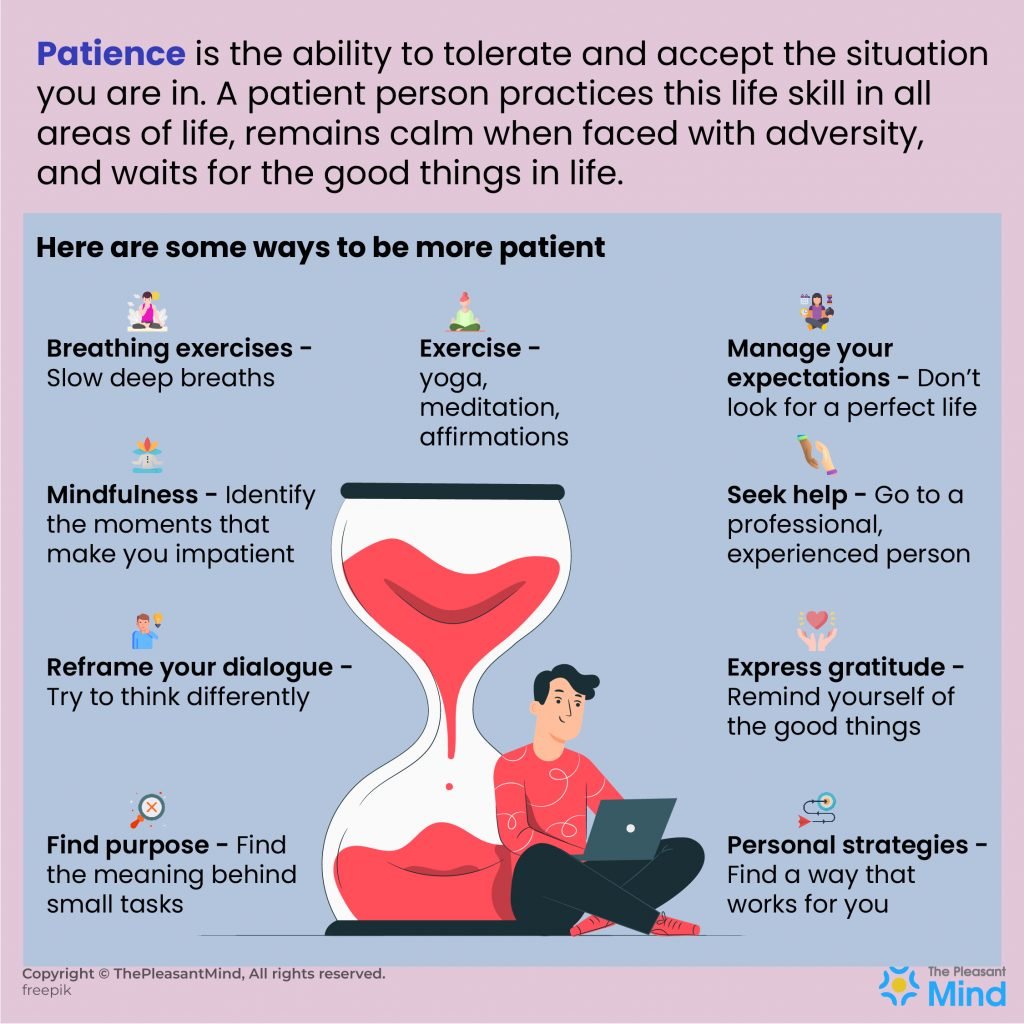
Understanding the Concept of Patience
Definition of Patience
Patience is the ability to endure difficult circumstances and delay immediate gratification. It’s about maintaining composure in the face of frustration and the capacity to wait without becoming agitated. Picture a gardener tending to seeds; it requires faith and time to witness the fruits of their labor.
Historical Perspectives on Patience
Throughout history, patience has often been lauded as a virtue. Philosophers like Aristotle emphasized its importance in moral development, associating it with wisdom and strength. Ancient texts from various cultures provide insights on patience:
- Buddhism: Teaches patience as a pillar of mindfulness.
- Christianity: Elevates it as a fruit of the Spirit.
- Stoicism: Views it as essential for personal fortitude.
These perspectives illustrate that patience transcends cultures and eras, shaping relationships and personal growth.
The Link Between Patience and Building Connections
Importance of Patience in Relationships
Patience is often the backbone of successful relationships. It allows individuals to navigate misunderstandings and conflicts without resorting to anger. For example, when a friend fails to respond promptly, patience fosters empathy, reminding us that everyone has their struggles.
Developing Patience in Communication
Effective communication hinges on the ability to listen and understand. Here are a few strategies to enhance patience in conversations:
- Active Listening: Focus entirely on the speaker without formulating a response.
- Pause Before Responding: Take a moment to gather your thoughts.
- Practice Empathy: Try to understand the perspective of others.
By incorporating these techniques, individuals can strengthen their connections, creating deeper and more meaningful relationships.

Psychological Benefits of Patience
Impact on Emotional Regulation
Cultivating patience significantly enhances emotional regulation. When individuals practice patience, they can better manage their emotions, reducing impulsive reactions during stressful situations. Think of a parent navigating a child’s tantrum; patience allows for calmness, enabling effective conflict resolution rather than escalating emotions.
Building Trust and Respect through Patience
Moreover, patience fosters trust and respect in relationships. When someone exhibits patience, it demonstrates that they value and care about the other person’s feelings. Consider these points:
- Consistency: Demonstrating patience over time builds reliability.
- Support: Offering a patient ear encourages openness.
- Understanding: Patience showcases respect for others’ experiences.
As a result, relationships deepen and mutual respect flourishes, contributing to overall psychological well-being.

Practical Tips for Cultivating Patience
Developing Self-Awareness and Mindfulness
To cultivate patience, developing self-awareness and mindfulness is crucial. It helps individuals recognize triggers that lead to impatience. For instance, when waiting in line, a deep breath can shift focus from irritation to gratitude for the moment. Consider practicing:
- Regular Meditation: Spending just a few minutes each day brings clarity.
- Journaling: Reflect on situations where patience was tested.
Techniques for Enhancing Patience in Interactions
Enhancing patience during interactions can lead to more fruitful conversations. Here are some practical techniques:
- Slow Down Your Response: Give yourself a moment before replying.
- Empathetic Listening: Acknowledge the other person’s perspective.
- Mindful Breathing: Use breathing techniques to remain composed.
Implementing these strategies not only improves personal resilience but also paves the way for enriched relationships.

Overcoming Challenges in Practicing Patience
Dealing with Frustration and Impatience
Practicing patience can often be met with frustration and impatience. Recognizing these feelings is the first step toward managing them. For example, when stuck in traffic, instead of fuming, one can listen to a favorite podcast or simply enjoy the scenery. This shift in mindset can help calm the storm of impatience.
Building Resilience in Patience Practice
To strengthen resilience in practicing patience, consider these tips:
- Set Realistic Expectations: Understand that not everyone moves at your pace.
- Celebrate Small Victories: Recognize moments where you exercised patience, reinforcing positive behavior.
- Seek Support: Share experiences with friends or a support group for encouragement.
By embracing these strategies, individuals can learn to navigate challenges with patience and grace, ultimately enriching their personal growth and relationships.

The Role of Patience in Long-Term Relationship Building
Working Through Conflicts with Patience
Patience plays a crucial role in navigating conflicts within relationships. When disagreements arise, it’s essential to approach the situation patiently, allowing both parties to express their feelings. For instance, during a heated discussion, taking a moment to breathe and consider your partner’s perspective can lead to resolution rather than escalation.
Sustaining Meaningful Connections with Patience
Moreover, patience is key in nurturing meaningful connections over time. Here are a few tips:
- Prioritize Quality Time: Dedicate time to deepen your bond without distractions.
- Practice Forgiveness: Letting go of grievances cultivates lasting harmony.
- Communicate Openly: Honest conversations strengthen trust.
By applying patience in these areas, individuals can build enduring relationships grounded in mutual respect and understanding.
